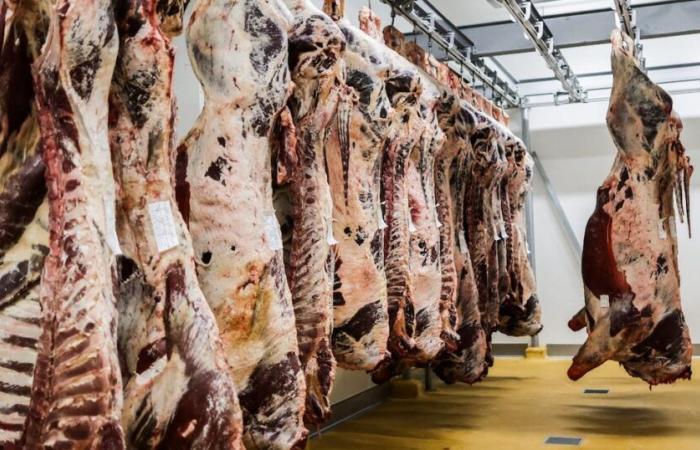The incessant rise in the price of red meat is undermining the budgets of several Moroccan households. To counter this inflation and regulate the market, the importation of fresh and frozen red meats from several countries, including Spain, was authorized. Among the conditions set: rigorous health certification to guarantee the quality and safety of the products, and a halal label attesting to compliance with current standards.
To obtain this certification, operators must follow a strict process including a formal application to a halal certification body, carrying out extensive audits of their facilities and procedures, employing qualified Muslim priests and implementing a quality management system consistent with religious and health requirements. This is what Saïd Ratbi Bali, General Manager of Halal Food & Quality, explains to us, a certification body specializing in the control, verification and awarding of halal labels for food products, based in Spain, and member of the National association of red meat producers in this Iberian country.
Read also: Morocco is turning to the importation of fresh red meats: here is the list of authorized countries
«Halal certification is a key step to access the Moroccan market and more broadly the global halal market», points out our interlocutor. It all starts with a certification request made by the company. Once this request is accepted, a certification body carries out a detailed audit of the slaughter facilities and processes.
The audit verifies that the infrastructure meets cleanliness and hygiene standards. The slaughter procedures are subsequently scrutinized. Each step must comply with religious requirements, and the intervention of qualified Muslim operators is obligatory. “Only duly trained people of the Muslim faith can carry out slaughter. This ensures that the act is performed according to religious principles», assures Saïd Ratbi Bali.
«A supervisor mandated by the certification body is always present during this operation to ensure that each animal is slaughtered in accordance with the rules, in particular with an invocation of the name of God before the act. A second person intervenes when affixing the stamp, which certifies that the meat is halal and suitable for sale», explains the General Manager of Halal Food & Quality.
“Each slaughter is closely supervised”
«This stamp is only affixed after careful inspection, thereby assuring consumers that the product meets religious and quality requirements. This step is essential, because it seals the conformity of the product and allows its entry into the Moroccan market. Each slaughter is closely supervised», he continues.
«Spain, already a leading trading partner for Morocco, is well positioned to meet the growing demand for halal-certified red meats. Thanks to robust certifications and high standards, operators offer a credible and reliable solution for Moroccan imports», affirms our interlocutor.
Read also: Prices of red meats have increased again in Casablanca
He also recalls that a Spanish delegation, bringing together the main players in the meat sector, traveled last week to Casablanca, Rabat and Tangier to explore the opportunities offered by the Moroccan red meat market. It was made up of representatives from 17 large companies, covering a large part of the sector. Among them, 90% of the main sheepmeat producers and 70% of beef producers were present.
These producers are distinguished by an integrated approach to their activity, controlling the entire production chain, from the cultivation of cereals for animal feed to the marketing of their finished products, concludes Saïd Ratbi Bali.






